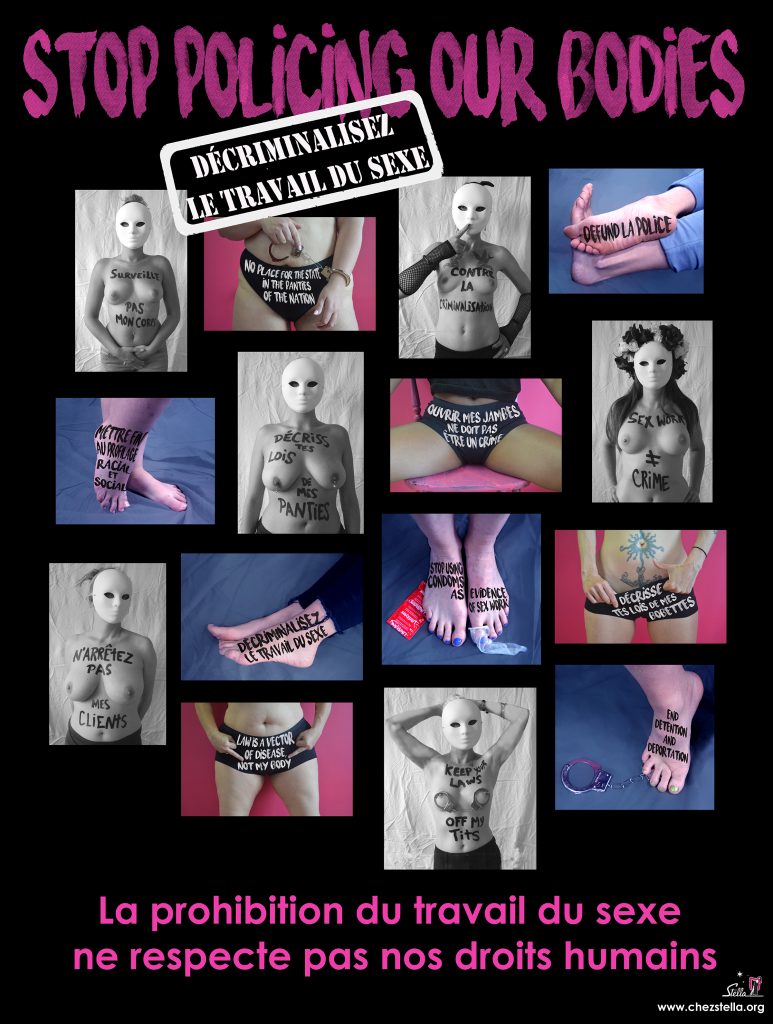
From COBP
Stella, l’amie de Maimie:
Fighting to end the criminalization of sex workers’ bodies since 1995
Sex working bodies are criminalized, surveilled, stigmatized, and discriminated against daily. Some people respect and revere our bodies, while others vilify and reduce us to the parts of bodies. Anti-sex work prohibitionists and law enforcement attempt to control us for using our bodies for pleasure, economic empowerment, and our advancement in society. Even though our bodies are only one of the many working tools we use in the context of our sex work, the stigma around sex work leads to social control and criminalization of our work and our lives. It results in discriminatory health, public, legal, and social services for sex workers, compromising our health and safety.
The criminalization – and ultimate prohibition of sex workers, clients, third parties, and advertising – introduced through The Protection of Communities and Exploited Persons Act (née Bill C-36) implemented in December 2014 impacts sex workers first and foremost – it displaces sex workers from habitual workplaces forcing sex workers to work in unknown areas and without safety mechanisms, it criminalizes communication necessary for consent in sex work, and fosters fear of arrest in clients whereby they do not share important information to sex workers. These “end demand” models are often described as “decriminalizing sex workers and criminalizing clients” – this is a lie. Limited understanding of “end demand” models means that their proponents are unaware of the ways in which this regime still criminalizes sex workers and put sex workers at risk.
Since 1995, sex workers in Montreal have been fighting for sex work law reform – the removal of criminal and immigration laws against sex work, as a first step to respecting sex workers’ rights. Decriminalizing sex workers, clients, and the people we live and work with is primordial to respecting sex workers Charter rights to safety and security. This echoes not only the Supreme Court decision in Bedford, but major international human rights research conducted by Amnesty International, UNAIDS, Human Rights Watch, and the World Health Organization, who all call for the total decriminalization of sex work. Decriminalization is only a first step: members of our community who occupy public space – particularly those who are Indigenous, Black, trans, who use drugs, who are living in homelessness — will continue to be harassed, surveilled, and policed. Ending unwanted and unsolicited visits from police in our lives is long overdue.
We continue our struggle to end the policing of our lives and our work, and we stand in solidarity with communities to defund police towards a police free society.
We invite sex workers working to contact us for non-judgemental advice and support, and ways to protect yourself during a time of increased surveillance, police repression, and general sentiments of prohibition.


